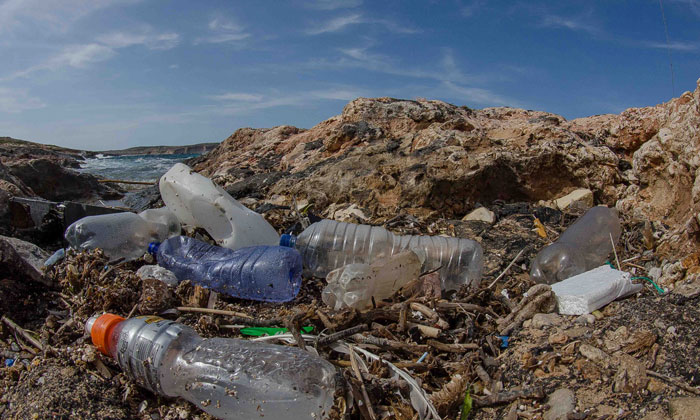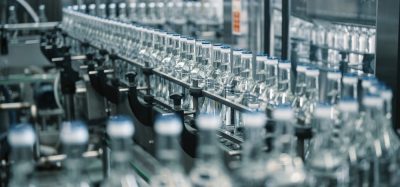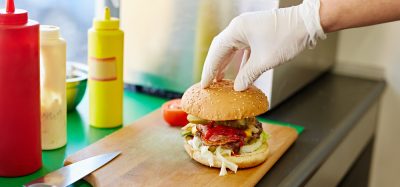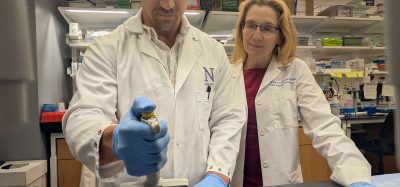Scientists engineer enzyme that can digest plastic bottles
Posted: 17 April 2018 | George Smith (New Food) | No comments yet
The tradition of chance meeting science continues after scientists ‘inadvertently’ engineer an enzyme better at breaking down plastics than its natural counterpart.


SCOURGE: Plastic pollution on a beach Photograph: David Jones
A transatlantic team of scientists has engineered an enzyme that can digest some of the world’s most common polluting plastics.
The discovery could result in a recycling solution for millions of tonnes of plastic bottles made of polyethylene terephthalate, or PET, which currently persists for hundreds of years in the environment.
The research was led by teams at the University of Portsmouth and the US Department of Energy’s National Renewable Energy Laboratory (NREL) and was published in Proceedings of the National Academy of Sciences (PNAS).
Professor John McGeehan at the University of Portsmouth and Dr Gregg Beckham at NREL solved the crystal structure of PETase, a recently discovered enzyme that digests PET, and used this 3D information to understand how it works. During this study, they inadvertently engineered an enzyme that is even better at degrading the plastic than the one that evolved in nature.
The researchers are now working on improving the enzyme further to allow it to be used industrially to break down plastics in a fraction of the time.
Professor McGeehan, Director of the Institute of Biological and Biomedical Sciences in the School of Biological Sciences at Portsmouth, said: “Few could have predicted that since plastics became popular in the 1960s huge plastic waste patches would be found floating in oceans, or washed up on once pristine beaches all over the world.
“We can all play a significant part in dealing with the plastic problem, but the scientific community who ultimately created these ‘wonder-materials’, must now use all the technology at their disposal to develop real solutions.”
The researchers made the breakthrough when they were examining the structure of a natural enzyme which is thought to have evolved in a waste recycling centre in Japan, allowing a bacterium to degrade plastic as a food source.
PET, patented as a plastic in the 1940s, has not existed in nature for very long, so the team set out to determine how the enzyme evolved and if it might be possible to improve it.
The goal was to determine its structure, but they ended up going a step further and accidentally engineered an enzyme which was even better at breaking down PET plastics.
Related topics
Contaminants, Packaging & Labelling, Research & development, Sustainability
Related organisations
University of Portsmouth, US Department of Energy’s National Renewable Energy Laboratory (NREL)









